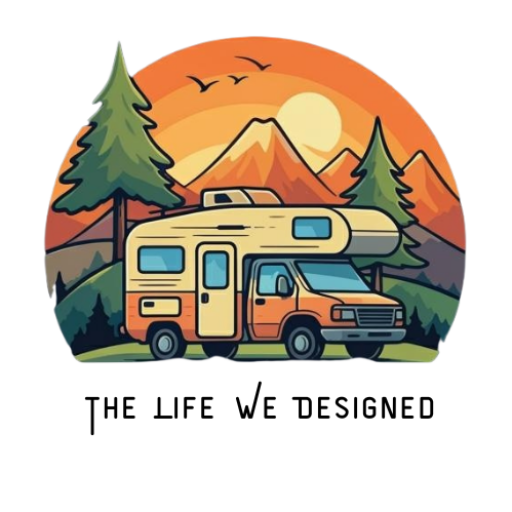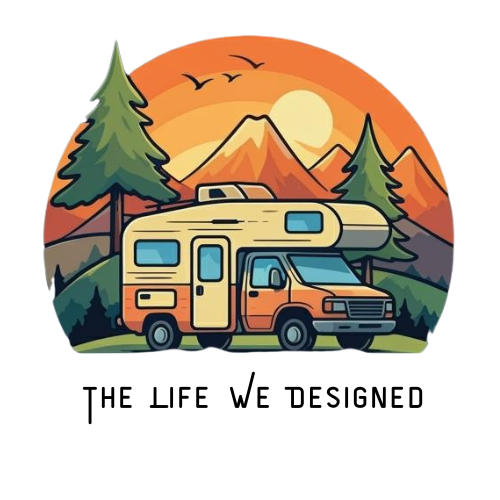Contents
Part 7 -Introduction to the Series
The RV lifestyle promises freedom and adventure, but it also comes with its own set of challenges. To thrive on the road, it’s essential to understand the practical logistics of RV life. From learning how to maintain your RV to finding the perfect campgrounds, these skills will ensure your journey is enjoyable and stress-free.
In this series, “RV Life Without the RV: Your Step-by-Step Guide to Preparing for Full Time RV Living,” we’ve already explored whether RV life is right for you (Part 1), the mindset shifts required for the transition (Part 2), ways to explore RV life before owning an RV (Part 3), financial preparation (Part 4), downsizing (Part 5), and building your RV life vision (Part 6).
In Part 7, we’ll focus on the logistics of RV life—the day-to-day skills and knowledge you need to navigate life on the road like a pro.
Learning the Logistics of RV Life
RV living requires more than just traveling from place to place—it’s about managing your home on wheels. In this article, we’ll cover the key logistical aspects of RV life, from operating your RV to finding campgrounds and staying connected on the road.
Mastering RV Basics
Before hitting the road, it’s important to understand how your RV operates and how to perform basic maintenance. Don’t be the one who pulls out of the RV spot with your satellite up or hoses connected! It happens. We have seen some pretty amazing mishaps.
Essential RV Skills to Learn:
- Driving and Parking: Practice driving your RV or towing your trailer, and learn how to back into a campsite. If you ever need a refresher, there are always one or two guys in the RV park who will gladly give you some guidance. Each type of RV has its way of parking. For example, trailers park differently than motorhomes.
- Hookups: Learn how to connect to water, electricity, and sewer at campgrounds. On our motorhome, it is easier to connect everything before the slide goes out.
- Waste Management: Understand how to empty your black and gray tanks safely and properly. The big trick is not to leave your blank tank open all the time. The paper can get dried up and cause blockages. Some believe that you should leave the grey tank closed as well, but we have always left ours open.
- Propane Use: Learn how to get propane tanks refilled and troubleshoot common issues.
- Basic Maintenance: Familiarize yourself with tire care, checking fluid levels, and routine inspections.
Actionable Tip: Watch online tutorials or take an RV basics class to learn these essential skills. Practice setting up and breaking down your RV in a safe, controlled environment.
Finding the Right Places to Stay
One of the most exciting parts of RV life is choosing where to park your home on wheels. Options range from luxury RV resorts to free boondocking spots.
Types of Places to Stay:
- Campgrounds and RV Parks: Offer amenities like full hookups, showers, pools, and laundry facilities.
- Boondocking Sites: Free camping spots on public lands, often in remote areas. Make sure it is safe and that you obtain any special permits or permissions.
- Harvest Hosts: Stay overnight at wineries, farms, and museums with a membership.
- State and National Parks: Scenic locations, often with limited hookups. These are a nice alternative to RV Parks on concrete pads.
Tips for Finding Campgrounds:
- Use apps like Campendium, The Dyrt, or iOverlander to research locations and reviews.
- Book popular destinations in advance, especially during peak seasons.
- Consider memberships like Passport America or Thousand Trails for discounts.
Actionable Tip: Research campgrounds and boondocking options near a destination you’d like to visit. Bookmark a few options for future reference.
Staying Connected on the Road
Reliable internet and phone services are essential for many RVers, especially those working remotely. We work on the road and chose to get a satellite service after battling with hot spotting our phones and unreliable park internet. Never rely on an RV park’s internet service, and most national park or state park locations do not offer internet service (which is great if you want to go off-grid).
Internet Options for RVers:
- Mobile Hotspots: Use your phone or a dedicated hotspot device for internet access.
Remember that a lot of areas in the mountains or very remote areas will have no towers. - Cell Signal Boosters: Improve weak signals in remote areas with a booster like WeBoost. Again, not all areas have towers to boost from.
- Campground Wi-Fi: Use with caution, as it’s often slow or unreliable.
- Satellite Internet: A pricier option for those traveling in very remote areas. We think it is worth it for what we do, but you will need to make that decision. It can also be paused if we don’t need it.
Tips for Staying Connected:
- Research cell coverage maps for your provider (e.g., Verizon, AT&T, or T-Mobile). These are generally vague on the actual parameters.
- Consider a backup internet option in case of outages.
- Test your setup before heading to a new location.
Actionable Tip: Evaluate your internet needs and research the best mobile hotspot or booster for your lifestyle.
Managing Your RV Budget
Even with a solid financial plan, managing your budget on the road requires ongoing attention. But it’s the same as if you were living in a house, right?
Common Budget Categories:
- Fuel: Costs can vary significantly based on travel distance and gas prices. Check out discount clubs from national companies like Flying J or Loves, or grocery stores like Kroger (which has many different names.) Every nickel counts.
- Campground Fees: Plan for a mix of paid and free stays. Staying by the week or month is usually less than nightly rates. We like to boondock when traveling across the country and then stay a month or so at a location. This single planning strategy can save you thousands of dollars over the year.
- Maintenance: Budget for regular upkeep and unexpected repairs. Needing new tires always seems to sneak up on us.
- Food: Save money by cooking in your RV rather than dining out. But eating local specialties is all part of the adventure, so splurge once in a while for sure!
Budgeting Tips:
- Track expenses using budgeting apps or in a Google Spreadsheet.
- Look for free or low-cost activities to enjoy at your destinations. Yelp is a good place to start, and then a visit to the Visitors Bureau office.
- Limit driving distances to save on fuel costs.
Actionable Tip: Create a sample monthly budget for your first few months on the road. Adjust as needed once you start traveling.
Planning for Safety on the Road
Safety is a top priority for RVers. Being prepared for emergencies and knowing how to handle unexpected situations can give you peace of mind.
Safety Tips:
- Road Safety: Inspect tires, brakes, and lights before every trip. Carry a roadside emergency kit.
- Weather Awareness: Monitor weather forecasts and avoid driving in severe conditions. NEVER drive in high winds. We never drive in winds over 25 mph.
- Security: Lock your RV when you’re away and consider installing a security system or cameras. This is especially important if you plan to do a lot of boondocking.
- Health Preparedness: Keep a first-aid kit and know the locations of nearby medical facilities. Check with your insurance provider to verify you are covered in other states.
- Check in: Let someone know where you are headed and your schedule. I created a shared calendar in my Google account where I put in all the RV parks and places we will be and share it with my daughter and granddaughter.
Actionable Tip: Assemble a safety kit for your RV, including tools, first-aid supplies, and emergency contact numbers.
Staying Organized in a Small Space
Living in an RV means maximizing every inch of available space. Staying organized is key to avoiding clutter and frustration.
We learned to move intentionally when we had our first voyage. We called it the “trailer dance.” That first trailer was 19 feet long and less than 160 square feet of space, which was mostly filled with a bed and appliances. I could turn around and get something from the fridge and get it on the counter without lifting a foot. I’m saying it was a small space.
Organization Tips:
- Use storage bins, hooks, and collapsible containers to maximize space. Better yet, only have what you need.
- Keep frequently used items easily accessible. I’ve learned that this is very important and can save you a lot of time. Everything has a place and should be in its place.
- Perform regular cleanouts to avoid accumulating unnecessary items. We will have occasional downsizing challenges throughout the year to help with this. Once you have what you need, the next step is to replace things. The mindset shift is away from shopping and more toward living.
Actionable Tip: Start experimenting with small-space organization in your current home. Test out storage solutions that could work for RV living.
Closing: Prepare for the Journey Ahead
Learning the logistics of RV life is an important step in preparing for your journey. By mastering RV basics, finding the right places to stay, staying connected, managing your budget, and planning for safety, you’ll be well-equipped to thrive on the road.
In the next article, “The First Steps to Full-Time RV Life: Making the Leap,” we’ll focus on transitioning from preparation to action. From purchasing your RV to planning your departure, you’ll learn how to take the final steps toward living your RV dream.
Stay tuned, and take the next step toward your RV adventure today!



